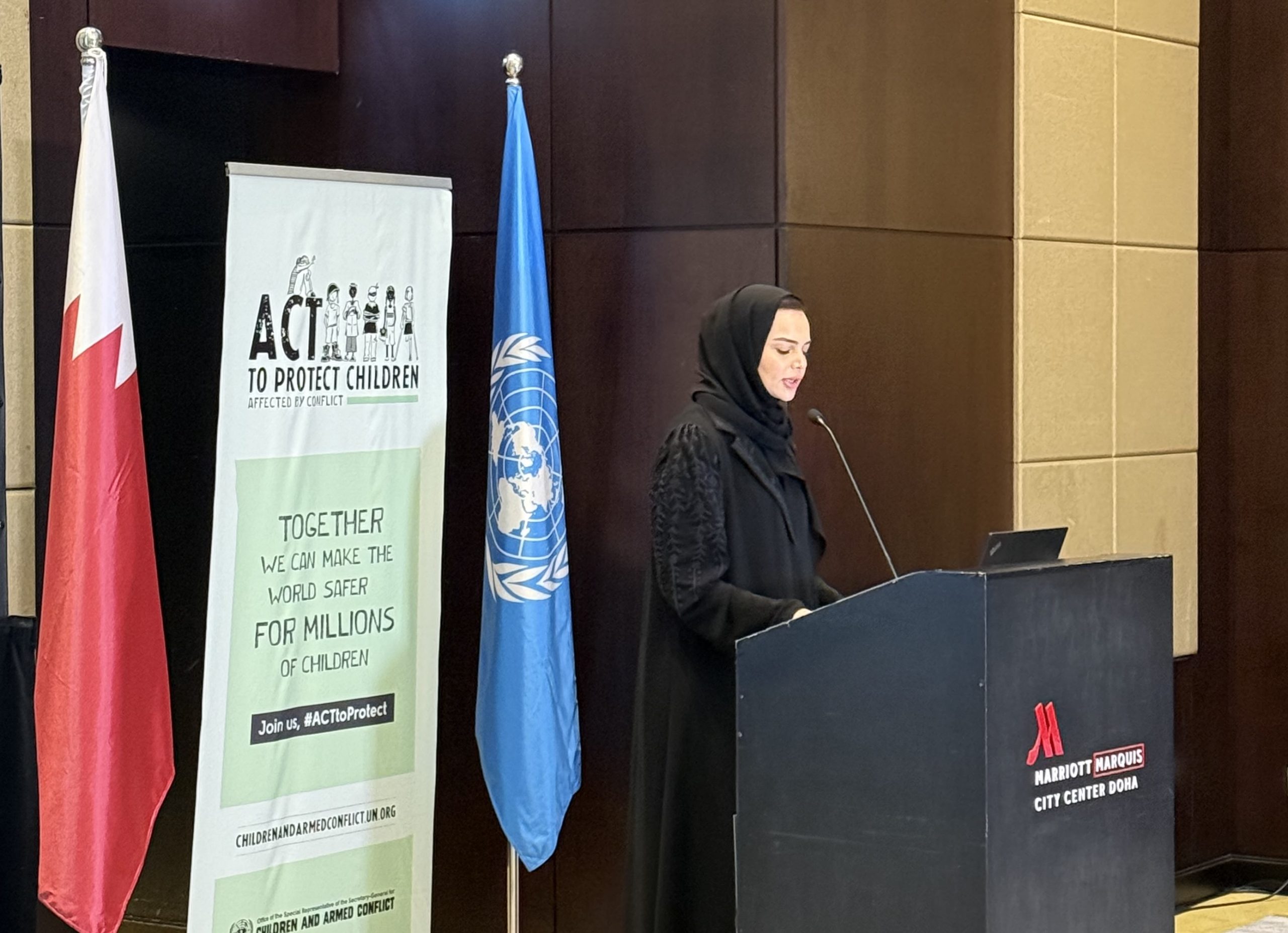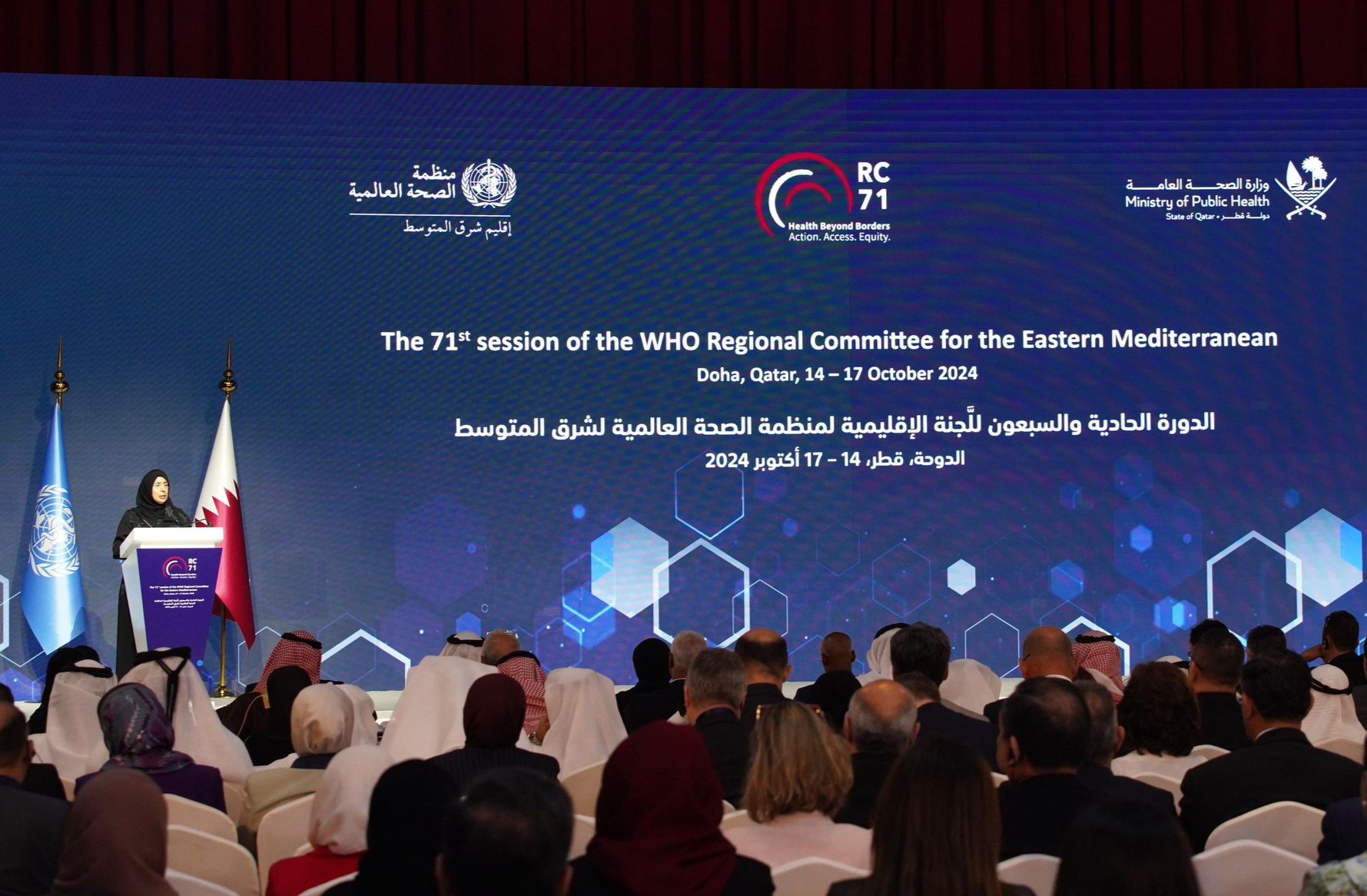
Amid a surge in incidences of the Middle East Respiratory Syndrome coronavirus (MERS-CoV), international healthcare officials have acknowledged the virus has “increased in seriousness and urgency.”
But there is not enough evidence yet to declare it a public health emergency of international concern, the World Health Organisation (WHO) has said.
However, the organization did call for greater public awareness on the spread of infection, particularly for Muslims going to Saudi Arabia to perform Hajj and Umrah. Qatar’s neighbor has been a ground zero for MERS.
At least 495 people there have been infected with the virus since it was first diagnosed in 2012, and 152 people have died.
WHO’s emergency committee of health and infectious diseases experts held a lengthy teleconference on Tuesday to discuss the issue, and announced their decision at a press conference yesterday.
The committee advised WHO’s Director General Margaret Chan that despite the recent rise in the number of cases and the international spread of the virus, there was not enough evidence for increased person-t0-person infection.
Action plan
Nevertheless, the 14-member committee, chaired by Prof. Chris Baggoley – the chief medical officer of Australia, strongly urged WHO and member states to take immediate steps to:
- Improve national policies for infection prevention and control, and implement them in health-care facilities in all countries (this is most urgent for affected countries);
- Initiate and accelerate critical investigations, including case-control, serological, environmental, and animal studies, to better understand the epidemiology, especially risk factors and assess the effectiveness of control measures;
- Support countries that are particularly vulnerable, especially in sub-Saharan Africa, taking into account the regional challenges;
- Strengthen case and contact identification and management;
- Greatly enhance awareness and effective risk communication concerning MERS-CoV to the general public, health professionals, at-risk groups, and policy makers;
- Strengthen intersectoral collaboration and information sharing across ministries and with relevant international organizations, especially with the World Organization for Animal Health (OIE) and the Food and Agriculture Organization of the United Nations (FAO);
- Develop and disseminate advice regarding mass gatherings to prevent further spread of MERS-CoV – this particularly related to pilgrimages such as Hajj and Umrah; and
- Share information in a timely manner with WHO, in accordance with the International Health Regulations (2005).
Decision under scrutiny
Assistant Director-General Dr. Keiji Fukuda said that one main factor influencing WHO’s decision was that lab tests of the most recent cases did not show that the virus had mutated since early cases were identified.
Fukuda added that despite the peak in new cases in Saudi Arabia and UAE in March, the committee heard that most of the cases were essentially hospital-acquired infections.
There is also an “information gap” in how and why the infection was spreading. It could be a seasonal blip, as there were similar increases at this time of year over the last two years, or it could be due to better detection.
“The more troubling possibility could be an increase in person to person transmissability. This is a pressing question, but when all the evidence was weighed up, there was nothing to show a real increase in this transmissability,” Fukuda said.
However, the committee’s decision has been criticized by some experts.
Preben Aavitsland, former state epidemiologist to Norway, participated in the drafting of the International Health Regulations in 2005 and its subsequent review in 2011. These guidelines regulate when public emergencies should be declared.
Speaking to Doha News, he said:
“I understand the reasons for not declaring MERS a ‘public health emergency of international concern’ at this time, but I view it differently. I think such a declaration could enhance the global coordination of studies into the spread of this disease and harmonize the measures needed to stop the spread.
I fear that in the coming weeks some countries may introduce fever screening of or travel restrictions for travelers from the affected countries in the Middle East. WHO needs to come out strongly against such measures, that will be disruptive to travel and personal freedoms without stopping the spread.”
He said that with the current pace of the epidemic and the constant trickling of cases to other continents, he believed WHO would have to declare MERS a “public health emergency of international concern” when the committee reconvenes in a few weeks time.
Qatar advice
Qatar officials have said there have been no new recorded cases of MERS since November last year. In total, eight people have been infected with the virus and four have died.
However, concern remains as summer approaches and people in Qatar travel. Saudi Arabia is a particularly popular destination during the holy month of Ramadan, which begins at the end of next month.
Yesterday, Qatar’s Supreme Council of Health (SCH) issued an updated public advisory notice, highlighting signs and symptoms that could indicate MERS, as well as listing ways to prevent infection.

International cases
WHO’s announcement comes as Saudi Arabia disclosed that there has been five new deaths from the severe respiratory illness – one in Riyadh and four in Jeddah, where a recent spike in infections as the city’s King Fahd hospital last month caused public panic.
MERS has spread to at least 17 countries, with the Netherlands recording its first case yesterday. That patient had traveled to Saudi before returning to the country with flulike symptoms.
In the United States, two health workers at a hospital in Orlando, Florida, who were exposed to a patient with the virus have recently begun showing flu-like symptoms.

On Tuesday, the White House confirmed US President Barack Obama had been briefed about the current MERS situation and that the Center for Disease Control and Prevention (CDC) was taking the issue “very seriously.”
Travel advisories have been posted in 22 airports around the US.
The most recent WHO figures (from May 9) report 536 cases of people being infected – although the actual number of cases is expected to be higher – and 145 deaths, since April 2012.
According to WHO, the majority of human-to-human infections have been in healthcare facilities, with health-care workers comprising a quarter of the number of reported cases.
IHR regulations
Under the International Health Regulations 2005, a public health emergency of international concern is one which is an “extraordinary event,” which:
- Constitutes a public health risk to other States through the international spread of disease; and
- Potentially requires a coordinated international response. This definition implies a situation that: is serious, unusual or unexpected; carries implications for public health beyond the affected State’s national border; and may require immediate international action.
The WHO has only declared a public health emergency twice since the International Health Regulations came into effect in 2005. The first time was the 2009 H1N1 flu pandemic, while the second was last week for a polio eradication effort.
In previous IHR meetings, although the committee expressed concern at the spread of MERS, it advised that the conditions for declaring a public health emergency had not at that time been met.
WHO experts have been working with the Ministry of Health in Saudi and with other international partners to better understand the spread of the infection. As many of those in KSA who have recently contracted MERS are healthcare workers, they are now focusing ensuring all hospitals and clinics employ effective infection control methods.
No cure
There is no cure for MERS, which presents as a respiratory infection and includes symptoms such as coughing, fever and difficulty breathing.
As a coronavirus, it is part of a family of viruses which range from the common cold to SARS, which began in China and spread internationally in the early 2000’s.
Scientists are still trying to learn exactly how the virus spreads. Many experts have said that camels are the main source of the disease, but how the virus is then passed on to humans is still not established.
Health authorities in KSA have advised those working with camels to take precautions by wearing masks and gloves.
Anyone with questions or symptoms can call the SCH’s dedicated MERS hotline: +974-6674 0951.
Thoughts?







